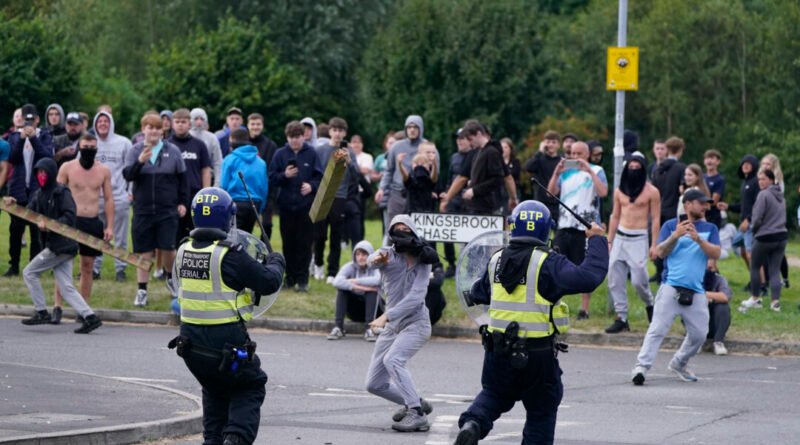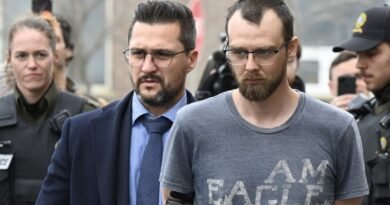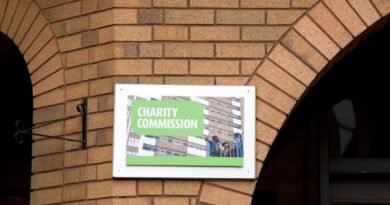Unpacking the UK Riots: A Closer Look
Authorities and experts are analyzing the ongoing demonstrations and violent riots that are now in their seventh day in several cities.
Experts are linking the unprecedented riots in the UK to a combination of deep-rooted immigration issues, online agitators, misinformation, extremists, police mismanagement, and hot summer weather.
The UK is currently in the midst of its seventh day of unrest, triggered by the stabbings in Southport that resulted in the death of three young girls at a Taylor Swift-themed holiday club.
The suspect behind the Southport attack was later identified as 17-year-old Axel Muganwa Rudakubana, born in Cardiff to Rwandan parents.
Following the attack, a fake news site incorrectly reported that the perpetrator was a Muslim illegal immigrant on a terror watch list who arrived in the UK on a boat.
Rioters have clashed with police in Rotherham, Tamworth, Manchester, Hull, Liverpool, Bristol, Blackpool, Plymouth, Birmingham, and Belfast.
As tensions rise, experts and former officials are examining the root causes of the unrest and the broader implications for the country’s social fabric.
‘Far-Right Thuggery’
Sir Keir Starmer announced plans to strengthen law enforcement against what he described as “far-right thuggery” following an emergency COBRA meeting, proposing the creation of a “standing army” of public order police to address the riots.
Approximately 400 arrests have been made since the violence erupted last week, with the National Police Chiefs’ Council (NPCC) anticipating a daily increase in the total number.
Rioters and anti-immigration protesters, primarily white groups, have targeted two Holiday Inn Expresses housing asylum seekers and mosques.
Following threats of far-right violence, Asylum Link Merseyside temporarily closed its offices.
In other areas, police officers have been targeted with large masonry, bricks, and fireworks.
Confrontations have arisen between groups and Muslim communities, with gangs in Stoke and Birmingham resorting to violence by arming themselves with knives and machetes and attacking establishments.

‘Divided Opinion’
There are varying opinions on the nature, causes, and solutions to the riots.
Donna Jones, a Conservative Party politician and the UK’s most senior police commissioner, faced criticism for suggesting that protest groups are motivated by a desire to protect Britain’s sovereignty and uphold British values.
While calling for calm, she emphasized the importance of addressing the underlying causes of civil unrest to prevent its recurrence.
Geddes also pointed out that social media accounts aggravating these tensions may have ties to foreign hostile states like Russia and China.
Authorities like the National Crime Agency are investigating if misinformation is being amplified by foreign actors.
“The warm weather of the past week contributed to the volatile conditions,” he added.
‘Ruling Class’
Professor Matt Goodwin, a pollster specializing in public attitudes, attributed these riots and immigration protests to more than just misinformation and social media.
He expressed concern about the riots reflecting ethnic conflict, which he believed stemmed from failures in multicultural policies.
Professor Gwythian Prins noted that the ongoing disorder in the UK is a result of a long trend of moral disarmament and breaches of trust by administrative leaders.
Retired police officer Norman Brennan highlighted the underlying resentment among the British people and speculated that the riots may continue without addressing illegal migration.
“This perfect storm has turned into a tsunami,” he concluded.
‘Alternative Narratives’
Analyst of radical right extremism Professor Matthew Feldman identified three main groups among the protesters.
He emphasized the need to differentiate between individuals who fuel hatred, those motivated by hatred, and those who engage in hateful actions.
“Separating the sympathizers from the hardcore and developing ‘alternative narratives’ is essential in engaging this audience,” he suggested.
PA Media contributed to this report.






